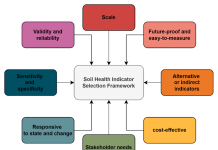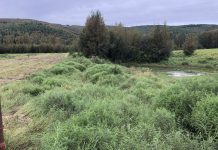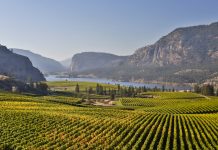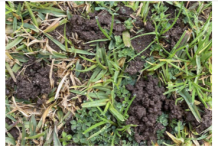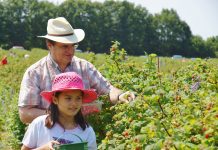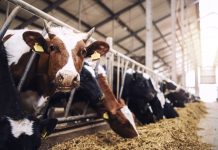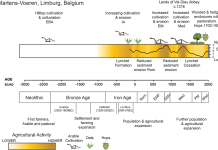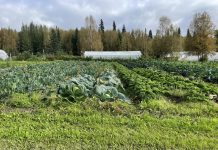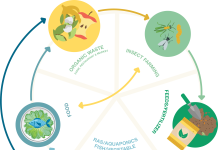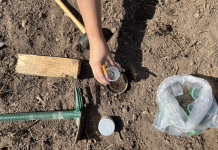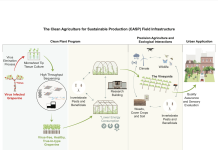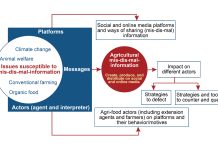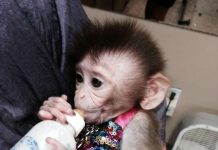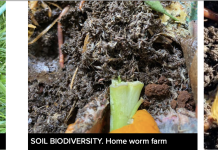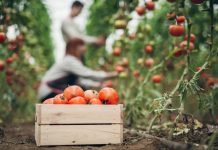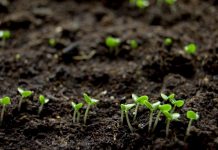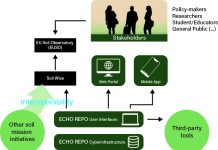Open Access Government produces compelling and informative news, publications, eBooks, and academic research articles for the public and private sector looking at health, diseases & conditions, workplace, research & innovation, digital transformation, government policy, environment, agriculture, energy, transport and more.
Home 2025
Archives
AI4SoilHealth Science: Revolutionising soil health monitoring
Seasoned experts explain here the revolutionising of soil health monitoring through the science of the AI4SoilHealth project.
Impacts of land clearing on areas containing permafrost
Melissa Ward Jones from the University of Alaska Fairbanks explores the impacts of land clearing on areas with permafrost.
Building resilience in Canadian vineyards through grapevine selections
Jim Willwerth, Assistant Professor and Researcher at Brock University, Canada, discusses how to build resilience in Canadian vineyards through grapevine selections.
The importance of earthworms for soil health
In this article, Lynette Abbott from The University of Western Australia, highlights the importance of earthworms for soil health.
Soil parent material: The role of earth’s skin on forest health
Soil is complex, posing challenges for measurement and management at scale. Mark Kimsey from the University of Idaho highlights the importance of monitoring soil properties in forest management. This has resulted in digital tools that help align management practices with the characteristics of soil parent material and climatic conditions.
Berry production in Alberta: Accessing the market through agritourism
Aleksandra Tymczak studies the berry industry – an expanding industry in Alberta’s agricultural system. Here, she highlights the growing agritourism industry in relation to the opportunities presented to berry producers.
The national animal nutrition program: Digital – editable – perennial – accessible
The National Animal Nutrition Program (NANP) aims to enhance animal nutrition and feeding management while actively addressing concerns shared by livestock producers, environmentalists, and policymakers both nationally and globally. Here, they share insights about their work.
Agricultural terraces in Europe: Geoarchaeological and botanical methods
Tony Brown, Dan Fallu, Sara Cucchiaro, Ben Pears, and the TerrACE Team, highlight agricultural terraces in Europe, providing geoarchaeological and botanical insights.
First insights into global permafrost-agroecosystems and recommendations for policymakers
Melissa Ward Jones discusses a recent paper published in Arctic, Antarctic, and Alpine Research of the first global study on permafrost-agroecosystems, published by members of the International Permafrost Association Permafrost-agroecosystem Action Group.
Incitis-food: Food security and environmental justice in African city regions
Dr Buchenrieder, Dr Benjamin from the University of the Bundeswehr Munich, and Dr Radišić and MS.c. Trivunić, from Foodscale Hub, introduce the INCiTiS-FOOD project for improved food and nutrition security in African urban and peri-urban areas.
The dynamics of soil health
Thomas Gumbricht from Stockholm University and xSpectre, with Sonia Meller from Digit Soil, discuss what we need to know about understanding the dynamics of soil health.
Innovative grape and wine industry research in a cool climate region
Jim Willwerth, Assistant Professor and Researcher at the Cool Climate Oenology and Viticulture Institute (CCOVI), discusses how the Institute is supporting the transformation of Canada’s agricultural ecosystem, and a self-reliant, sustainable model for the rest of the world.
Why accurate info matters in agri-food and climate change
Dr Ataharul Chowdhury from the School of Environmental Design & Rural Development explores the importance of an agri-food, climate change, and rural misinformation research...
Stakeholder engagement, governance analysis, and co-creation for more effective WEFE Nexus management
Dr Janez Sušnik, from the IHE Delft Institute for Water Education and Coordinator of NEXOGENESIS, provides insights on stakeholder engagement, governance analysis, and co-creation to enhance WEFE Nexus management.
Welfare of pet primates for sale in the United States
Dr. Melissa Seaboch, Professor and Department Chair at Salt Lake Community College, charts the welfare of pet primates for sale in the United States.
Soil biodiversity is essential for building environmental resilience
The School of Agriculture and Environment and Institute of Agriculture at the University of Western Australia recognise the importance of soil biodiversity in managing soil conditions and building resilience against environmental changes.
The TITAN Project: Transforming the food system for a sustainable future
The European Federation of Food Science and Technology (EFFoST) wants to revolutionise the food industry with its new TITAN Project. This four-year Horizon Europe initiative seeks to enhance transparency, improve food safety, and promote sustainability in the agri-food sector.
Combating drought to increase soil water retention in vineyards
Professor Pete W. Jacoby, from Washington State University, researches methods to combat impacts of global warming by enhancing soil water retention for vineyard resilience.
Citizen science initiatives for soil literacy
Alba Peiro and Francisco Sanz from the Ibercivis Foundation, Claudia Cappello and Tanja Mimmo from the Free University of Bolzano, guide us through citizen science initiatives for soil literacy that are integral to the ECHO project.
Advancing the soil deal for Europe through cyberinfrastructure and citizen science
This article explores advancements in soil health across Europe, highlighting innovative cyberinfrastructure for soil citizen science. This initiative, led by the Quanta team, allows citizens to actively participate in environmental stewardship.

